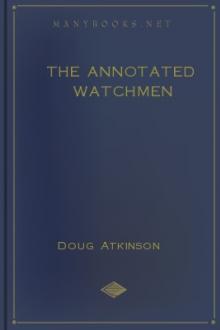The House of Arden E. Nesbit (top android ebook reader TXT) 📖

- Author: E. Nesbit
Book online «The House of Arden E. Nesbit (top android ebook reader TXT) 📖». Author E. Nesbit
“It is,” said Elfrida again, very softly, so as not to frighten it.
“What?” Edred asked, though he knew well enough.
“Off the book that we got the spell out of.”
“That was our crest on the top of our coat-of-arms, like on the old snuffbox that was great-grandpapa’s.”
“Well, this is our crest come alive, that’s all.”
“Don’t you be too clever,” said Edred. “It said badge; I don’t believe badge is the same thing as crest. A badge is leeks, or roses, or thistles—something you can wear in your cap. I shouldn’t like to wear that in my cap.”
And still the golden thing at their feet moved cautiously and without ceasing.
“Why,” said Edred suddenly, “it’s just a common old mole.”
“It isn’t; it’s our own crest, that’s on the spoons and things. It’s our own old family mole that’s our crest. How can it be a common mole? It’s all golden.”
And, even as she spoke, it left off being golden. For the last bit of sun dipped behind the shoulder of the downs, and in the grey twilight that was left the mole was white—anyone could see that.
“Oh!” said Elfrida—but she stuck to her point. “So you see,” she went on, “it can’t be just a really-mole. Really-moles are black.”
“Well,” said Edred, “it’s very tame. I will say that.”
“Well—” Edred was beginning; but at that same moment the mole also, suddenly and astonishingly, said, “Well?”
There was a hushed pause. Then—
“Did you say that?” Elfrida whispered.
“No,” said Edred, “you did.”
“Don’t whisper, now,” said the mole; “ ’tain’t purty manners, so I tells ’ee.”
With one accord the two children came to their knees, one on each side of the white mole.
“I say!” said Edred.
“Now, don’t,” said the mole, pointing its nose at him quite as disdainfully as any human being could have pointed a finger. “Don’t you go for to pretend you don’t know as Mouldiwarps ’as got tongues in dere heads same’s what you’ve got.”
“But not to talk with?” said Elfrida softly.
“Don’t you tell me,” said the Mouldiwarp, bristling a little. “Hasn’t no one told you e’er a fairy tale? All us beastes has tongues, and when we’re dere us uses of en.”
“When you’re where?” said Edred, rather annoyed at being forced to believe in fairy tales, which he had never really liked.
“Why, in a fairy tale for sure,” said the mole. “Wherever to goodness else on earth do you suppose you be?”
“We’re here,” said Edred, kicking the ground to make it feel more solid and himself more sure of things, “on Arden Knoll.”
“An’ ain’t that in a fairy tale?” demanded the Mouldiwarp triumphantly. “You do talk so free. You called me, and here I be. What d’you want?”
“Are you,” said Elfrida, thrilling with surprise and fear, and pleasure and hope, and wonder, and a few other things which, taken in the lump, are usually called “a thousand conflicting emotions,”—“are you the ‘badge of Arden’s house’?”
“Course I be,” said the mole—“what’s left of it; and never did I think to be called one by the Arden boy and gell as didn’t know their own silly minds. What do you want, eh?”
“We told you in the spell,” said Elfrida.
“Oh, be that all?” said the mole bitterly; “nothing else? I’m to make him brave and wise and show him de treasure. Milksop!” it said, so suddenly and fiercely that it almost seemed to spit the words in poor Edred’s face.
“I’m not,” said Edred, turning turkey-red. “I got into the house and found the spell, anyway.”
“Yes; and who did all the looking for it? She did. Bless you, I was there; I know all about it. If it was showing her the treasure, now, there’d be some sense in it.”
“I think you’re very unfair,” said Elfrida, as earnestly as though she had been speaking to a grown-up human being; “if he was brave and wise we shouldn’t want you to make him it.”
“You ain’t got nothing to do with it,” said the mole crossly.
“Yes, she has,” said Edred. “I mean to share and share with her—whatever I get. And if you could make me wise I’d teach her everything you taught me. But I don’t believe you can. So there!”
“Do you believe I can talk?” the mole asked, and Edred quite definitely and surprisingly said—
“No, I don’t. You’re a dream, that’s all you are,” he said, “and I’m dreaming you.”
“And what do you think?” the mole asked Elfrida, who hesitated.
“I think,” she said at last, “that it’s getting very dark, and Aunt Edith will be anxious about us; and will you meet us another day? There isn’t time to make us brave and wise tonight.”
“That there ain’t, for sure,” said the mole meaningly.
“But you might tell us where the treasure is,” said Edred.
“That comes last, greedy,” said the mole. “I’ve got to make you kind and wise first, and I see I’ve got my work cut out. Good night.”
It began to move away.
“Oh, don’t go!” said Elfrida; “we shall never find you again. Oh, don’t! Oh, this is dreadful!”
The mole paused.
“I’ve got to let you find me again. Don’t upset yourself,” it said bitterly. “When you wants me, come up on to the knoll and say a piece of poetry to call me, and I’ll come,” and it started again.
“But what poetry?” Edred asked.
“Oh, anything. You can pick and choose.”
Edred thought of “The Lays of Ancient Rome.”
“Only ’tain’t no good without you makes it up yourselves,” said the Mouldiwarp.
“Oh!” said the two, much disheartened.
“And course it must be askin’ me to





Comments (0)